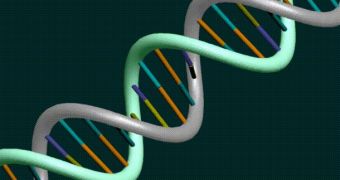Some play God and play it tough. The famous US scientist Craig Venter is going to create the first ever artificial life form. He has managed to build a synthetic chromosome employing chemicals obtained in the lab and the new achievement could lead to new energy sources to fight off the negative effects of global warming, but also it would theoretically be "a very important philosophical step in the history of our species," Venter told The Guardian.
Of course, engineering artificial life forms has sparked great controversy over the ethics and potential applications. This is "a chassis on which you could build almost anything. It could be a contribution to humanity such as new drugs or a huge threat to humanity such as bio-weapons." Pat Mooney, director of the Canadian bioethics organization ETC Group, told the Guardian.
Venter's team has obtained a chromosome made of 381 genes they called Mycoplasma laboratorium and now the researchers have to transplant it into a living cell, where it should "take control", turning into a new artificial life form.
The single cell organism, called "Synthia," would be controlled by the only 381 genes, the lower limit required by bacteria to accomplish minimal life functions: feeding and reproduction. The new bacteria won't be entirely artificial, as some of its building blocks are taken from existing organisms.
Synthia could be employed as a universal tool using its genes to accomplish specific tasks and this could be achieved by adding genes to its chromosome. Venter's team has been working for 5 years at this study, partially financed by the US Department of Energy, eager to detain new methods for a new environmentally friendly fuel. "We are going from reading our genetic code to the ability to write it. That gives us the hypothetical ability to do things never contemplated before," said Venter.
Still, a Venter spokeswoman has denied any breakthrough.
"We have not achieved what some have speculated we have in synthetic life. When we do so there will be a scientific publication and we are likely months away from that." Heather Kowalski told AFP.
Venter's laboratory, the J. Craig Venter Institute, asked in 2006 for a US patent on the organism, for the ownership of some essential genes and a synthetic "free-living organism that can grow and replicate."
"Venter and his colleagues have breached a societal boundary, and the public hasn't even had a chance to debate the far-reaching social, ethical and environmental implications of synthetic life," said Mooney in 2006.

 14 DAY TRIAL //
14 DAY TRIAL //